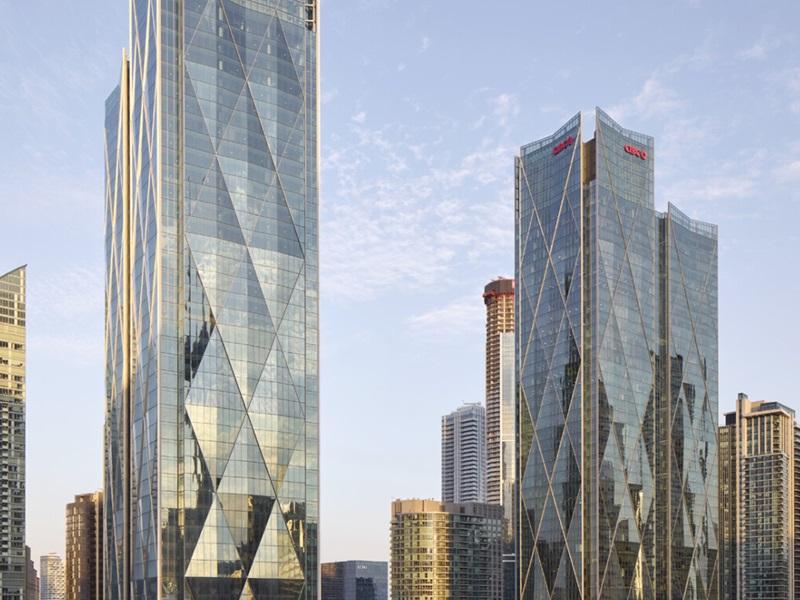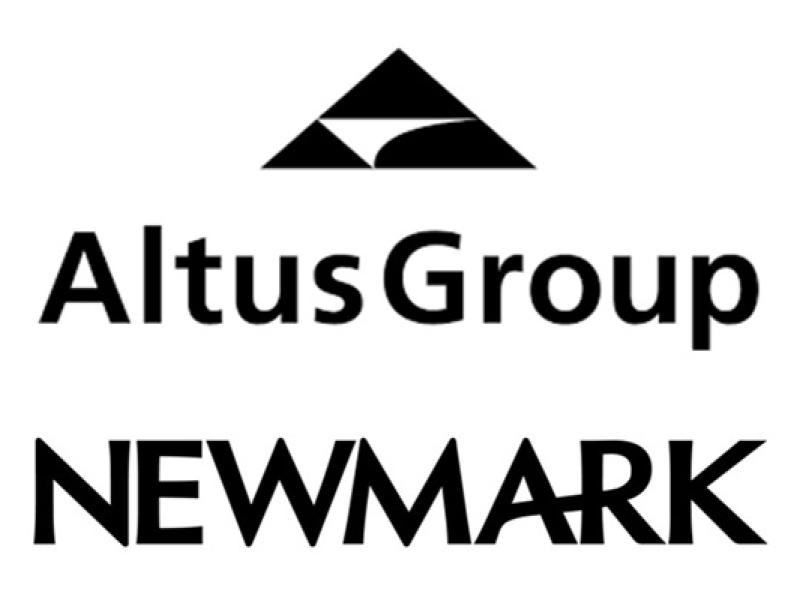
Kevin Gorrie, president and CEO of Granite REIT.
The expansion of Granite REIT’s industrial portfolio continued without pause during Q3 2020, with the additions of 1.3 million more square feet of space, a move into a new U.S. market and an increase in the trust’s distributions to shareholders.
The trust (GRT-UN-T) announced this week the acquisitions of three properties in the Greater Toronto Area (each about 100,000 square feet), a firm agreement to buy a million-square-foot distribution centre in Atlanta and dispositions of three non-core Magna-tenanted facilities, one in Barcelona and the other two in Southwestern Ontario.
For its investors, the trust increase its annual distribution rate 3.4 per cent to $3 per unit, or $0.25 per month, beginning in December.
“The pace of our acquisition activity to date has been slower, but frankly that has been more a factor of the steep increase in pricing for good assets in our target markets during the second and third quarters than a lack of opportunities,” Granite president and CEO Kevan Gorrie told analysts and investors on the trust’s quarterly financials call this week.
“At this time, I would characterize our acquisitions pipeline as being very active and we expect to commit a good portion of our cash on hand by the end of the year.”
Granite REIT enters Atlanta market
The acquisitions include an agreement to acquire 8500 Tatum Rd., a million-square-foot, 36-foot clear height modern warehouse distribution facility on 83.5 acres in Atlanta, for $107 million. The state-of-the-art facility was completed in 2019 and is leased to PVH Corp. for 15 years.
The site is in Atlanta’s Palmetto sub-market near the I-85 thoroughfare less than 15 miles from Hartsfield-Jackson Atlanta International Airport, the world’s busiest passenger airport.
The property is PVH’s primary e-commerce distribution facility and is being acquired at an in-going yield of 4.4 per cent. The transaction is expected to close in Q4 2020.
“Atlanta has been on our radar for quite a while – we think it is a very important logistics market,” Gorrie said. “There has been a lot of supply but demand to date has been able to keep up with it.”
Granite is already active in the nearby Savannah market, owning a couple of properties in the area which have access to its busy port facilities. It continues to like the metrics in both Georgian cities.
”We don’t believe we are done in the Atlanta market. We want to continue to find opportunities and grow our footprint in that market.”
GTA acquisitions
In the Greater Toronto Area, Granite closed on three acquisitions:
* 8995 Airport Rd., a 100,000-square-foot, 26-foot clear modern distribution facility on 5.5 acres of land in Brampton. Granite paid $22.2 million in a sale-leaseback of the Canadian headquarters of GameStop Corporation, for an initial five-year term at an in-going yield of 5.1 per cent;
* Four industrial buildings in Mississauga, totalling about 100,000 square feet on 6.1 acres of contiguous land, for $19.5 million. The properties are 100 per cent leased to four tenants for a weighted average lease term of 5.6 years, with a in-going yield of 4.1 per cent. In-place rents are significantly below market. The properties are at the junction of Highways 401, 410 and 403;
* 555 Beck Crescent in Ajax. The 100,000-square-foot, 24-foot clear height light manufacturing industrial facility was bought on a sale-leaseback for $15.4 million. It’s leased for 10 years, with contractual rent escalations, representing an in-going yield of 4.6 per cent. The 7.6-acre site contains excess land which could support an expansion of about 40,000 square feet.
Granite’s dispositions included two Magna-tenanted sited in Tecumseth and St. Catharines in Ontario, as well as a third in Barcelona for a total of $31.3 million.
Granite had its roots as the real estate arm of Magna, but has been steadily diversifying and repositioning its portfolio.
The divestments leave it with about 35 per cent of its revenues from Magna, a figure it expects to pare to about 30 per cent over the next year or so.
Pricing reductions did not materialize
Gorrie said expectations there might be some asset pricing reductions due to the COVID-19 pandemic have not materialized, except in a very few instances. Thus, deploying capital has remained a challenge through both Q2 and Q3.
“During the time, we saw a number of opportunities that crossed our radar in the GTA. We liked these opportunities because they were really good locations, they had a good growth profile and we felt the pricing was impacted by COVID,” he said, noting Granite attempted to avoid bidding wars which often develop on fully marketed assets.
“In the U.S., it was a different story. The investment market – market fundamentals to a degree, but the investment market – snapped back much faster. There were new entrants and pricing competition was higher, across our target markets anyways.
“I think the volume of opportunities continued to grow late in the second quarter and into the third, it’s just that pricing in our minds had gone up quite considerably and cap rates had fallen.
“We potentially mistakenly thought there would be more value opportunity out there as a result of COVID, but there was just too much capital chasing good industrial product in our target markets and pricing became much more competitive, much faster than we had expected.”
Granite REIT developments, financials
Granite also updated its development activities.
It completed and occupied one property in the Netherlands “months ahead of schedule” and is moving ahead with plans to start construction on other developments in Houston and Forth Worth in Texas, as well as in Germany during the first half of 2021.
The trust is also working with tenant Congebec to plan the expansion of a cold storage facility in Mississauga, with work likely to start early in 2021.
Granite is targeting $100 to $140 million in development during 2021.
The REIT’s Q3 financial highlights reported net operating income of $76.5 million, up significantly from $60.1 million in Q3 2019 due mainly to acquisitions.
It also benefited from same property an NOI increase of three per cent, driven by a couple of significant rent increases.
AFFO was $52.7 million ($0.91 per unit) compared to $44.4 million ($0.90 per unit) a year earlier. The AFFO payout ratio was 80 per cent for the quarter, up two per cent from 2019.
During the past year (since Q3 2019) Granite’s portfolio has grown from $4.5 billion to $5.4 billion in properties, and its net debt to 24 per cent from 21 per cent of asset values.
GLA has grown from 40 million square feet to 45.4 million square feet.
Average lease term reduced
The weighted average lease term across the portfolio dipped from 6.5 to 5.9 years, but Gorrie said management is comfortable with that because it is mainly attributed to asset acquisitions.
“A big part of it was the portfolios we added in the Midwest and Memphis,” Gorrie said, referring to two portfolio purchases made earlier in 2020.
“Those were shorter (remaining lease terms). We like the markets, we love the quality of the assets and we felt that they provided strong growth potential.
“So, we were willing for the weighted average lease term to go down and capture some growth because we believe in the quality of those assets and the locations.”










